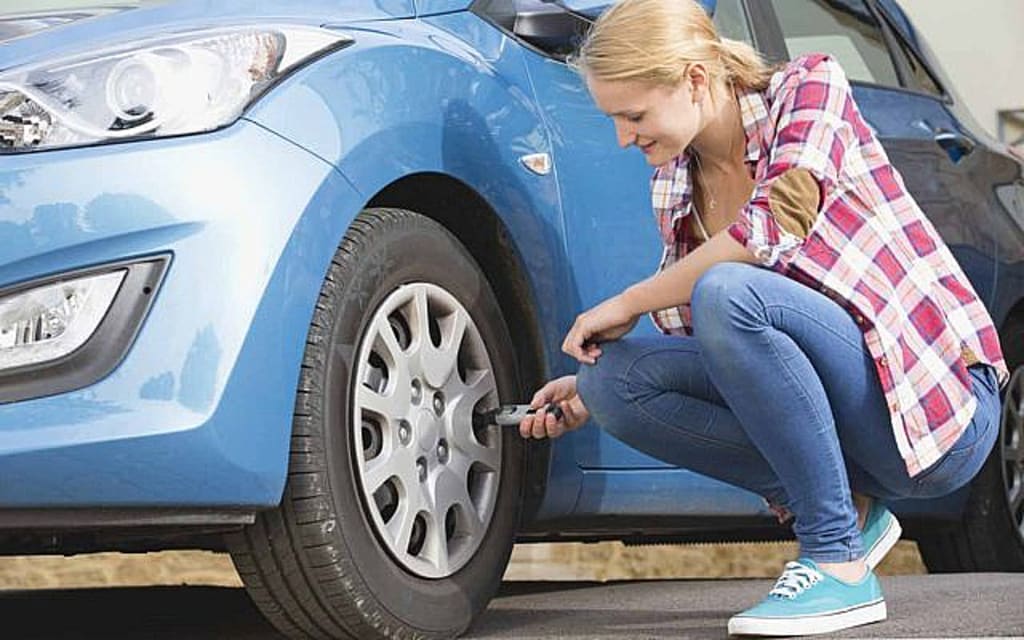Useful Tips To Prepare Your Car for Warm Weather
B

The summer heat can be intense and should not be taken lightly. When temperatures reach 50 degrees Celsius, your car will run into problems that you may have never seen before.
This is because the interior components generate a lot of heat themselves; preparing them for such high-grades in temperature could save its life during this difficult time without intervention from outside forces like rain or snowfall which cause even more damage than we already see now with just sunshine alone.
There are few factors mentioned below written by car experts of Jaftim Cars Dubai, UAE, that you need to think about to take care of your car in the hot summers.
CHECK CAR AIR CONDITIONING
In the summer, a car’s air conditioner needs to work at its best in order not to cause health problems for those who ride inside.
In UAE, and a few other Middle Eastern countries, there is an increased risk of heatstroke as well so make sure your coolant levels are good and check any leaks before it becomes too late.
Driving in hot weather is dangerous for drivers and passengers alike. An examination of your car’s cooling system will prevent health hazards, especially if you live in an area where there's a high risk of heatstroke during summer months like UAE does.
CHECK TYRE PRESSURE
A little-known fact about the risk of tire blowouts in hot weather is that it can happen at any time, even during low temperatures. The reason for this occurrence may seem confusing but there are two factors to consider: firstly, heat causes fluctuations with pressure which leads us to believe drivers should keep an eye on their tires; secondly - and perhaps most importantly--checked or inflated levels might not last long outside.
CHANGE ENGINE OIL
What's the best way to keep your car running smoothly? Change the oil frequently. To find out how often you need to change your oil, take a look at your owner's manual or ask a knowledgeable service advisor for advice.
The more you drive, the faster you'll go through oil and other fluids in your engine so it's important to follow manufacturer guidelines closely.
One of the most common mistakes people make is waiting too long before changing their motor oils and other fluids.
This can lead to costly repairs down the line as well as decreased fuel economy and performance from your vehicle, not something that any driver wants. Your engine oil is one of the most important parts that keep your car running smoothly. It should be changed regularly to avoid any problems with friction, but you may have noticed a change in its appearance or smell? This could mean there are old impurities inside and it needs flushing out before they cause serious damage.
CHANGE AIR FILTERS
Changing the air filter in your car is an important task that should be done once a year, but it can be difficult to remember when.
The air filter traps dirt particles from entering into the engine of your car, protecting the engine from possible damage. It also regulates airflow which helps with fuel efficiency and performance. If left untreated, dirty or clogged filters can cause problems like increased fuel consumption, reduced acceleration, poor mileage per gallon and even major engine damage.
The best way to avoid these issues is by following our guide on when to change out your air filter so you never have to face any problem near in future.
You should clean your car’s air filters to prevent any issues from occurring. Filters are responsible for releasing a lot of dust when you turn on the AC. It can lead respiratory problems in people who work with them all day long, as well as damage done internally by these harmful microscopic particles that get into our systems through their breathing pores over time too.
PROTECT CAR EXTERIOR
The exterior of your car is constantly being bombarded with UV rays, dirt, water, bugs, and other substances. The more you drive the worse it gets because these substances are transferred onto the outside of your vehicle. You can protect your car's exterior by first washing it on a regular basis to remove any loose particles. Use a clay bar or wax for added protection against nicks and scratches.
Keeping a car cover in your vehicle is always good for both exterior and interior protection.
In summer, use of shade or an outdoor shelter can help keep you cool while parked outdoors on hot days with no breeze to circulate air inside the building where it's located - especially if there are windows right by where people sit when driving their cars.
Similarly, many believe that using one will also protect against rust from being caused due to high salt levels during winter months since snow doesn't stay on ground long enough at these times without freezing first.
TOP OFF ALL FLUID
As the weather gets warmer, drivers should make sure their car has all fluids in it. With so much rubber and metal rubbing together to create friction for heating purposes (a process called convection), getting too low on any of those parts could cause problems with performance during a drive-thru or even just while sitting still at home!
A healthy vehicle needs oil as well as other liquids that reduce drag such water pump/differential fluid along with varying levels depending upon if you have air conditioning which requires an additional injection system made from anti-freeze.
CHECK CAR BATTERY
Batteries have a tendency of overheating because it becomes heated from high temperatures which increases their chemical reaction and starts causing corrosion on terminals as well as cables clamps connections.
Due to heat damage caused by evaporation or puncture wounds during time without use for an extended period.
The ideal temperature range where batteries can operate effectively is +5°c-35 °c. This varies depending upon how often you drive so check with manufacturer recommendations, and suggestions.






Comments
There are no comments for this story
Be the first to respond and start the conversation.